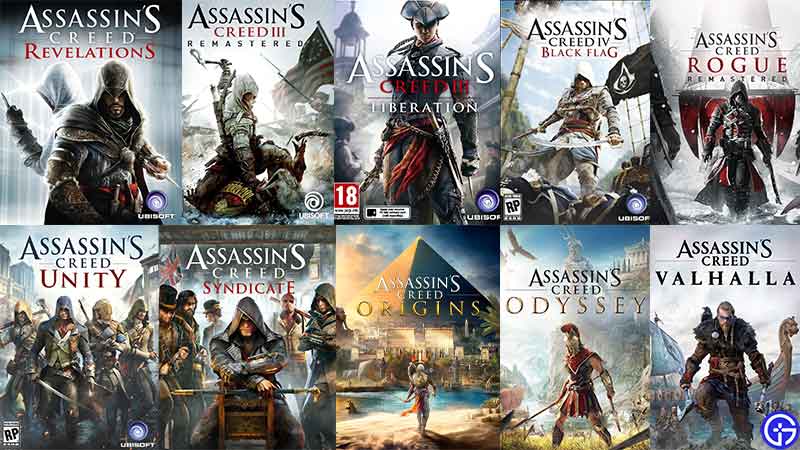Video games have been a staple part of my life with my earliest memories occurring when I was 6 or 7 years old. Over my long years and hours gaming, some of my favorite games featured a historical aspect or setting. Since I was very young when I started playing, most historical settings were new to me and help developed my love for history. In recent years, I’ve gravitated towards games with settings that I’m not knowledgeable about. One game series that was mentioned frequently and that was influential is the Assassin’s Creed Series.

For many fans and myself, the most appealing thing about this series is the settings where each game takes place in. The first few games of the series took place during the Italian Renaissance and the world was built to include famous structures and figures. In these games, I was introduced to the concept of the Renaissance and met influential figures such as Leonardo da Vinci, Michelangelo, and Machiavelli. These features of the game would continue on in other time periods like the French Revolution, American Civil War, the era of Pirates, England in the Industrial Revolution, Ancient Greece, and a recently announced Feudal Japan. Although not all parts of the game are historically accurate, the developers made sure to be historically authentic and to include “codices” that gave additional info to anything historical in the game. Being exposed to these historical settings and reading the codices influenced me to look up more about the historical parts of the game on my own.
Although not for everyone, video games could be another option to teach people about history or at best influence them to learn more. What makes historical settings in video games so appealing is the ability to visualize and be a part of that setting. What makes the Assassin’s Creed games so popular is that you could visit places like Ancient Greece, walk around and meet historical figures who will help you in the game. You have the ability to be a part of that historical period and interact with it.
While video games have outpaced other entertainment mediums and have continued to grow exponentially since the pandemic, there has been this barrier between it and the public eye. For some, video games are an addiction that plagues the youth, or they are promoters of violence. For many others, the culture of “gamers” are one that promotes aggression, uncleanliness, gate keeping, racism, and misogyny. Despite other mediums encompassing similar aspects, the widespread popularity of gaming and its connection to the internet have granted video games a terrible reputation among those who aren’t familiar with it. As such, many don’t perceive video games and its products as important contributors to life and history.
History in video games are similar to history in books, movies, etc. There will be some things that are historically accurate while some other aspects might be bent to fit the ideas of its creators. These avenues could help teach history, but they are ultimately mediums that entertain us. While there might be discussions and discourse over inaccuracies in books and movies, video games’ banes result in harsh backlash and attacks against developers by a general loud minority, further decreasing the reputation of gaming.
Video games have an amazing potential to educate and get audiences interested in history. It’s interactivity combined with a compelling story can appeal to all types of people, gamers or not. Through a world wide endeavor, the gaming community must help itself to achieve a better standing among others if it wants to be taken seriously.

